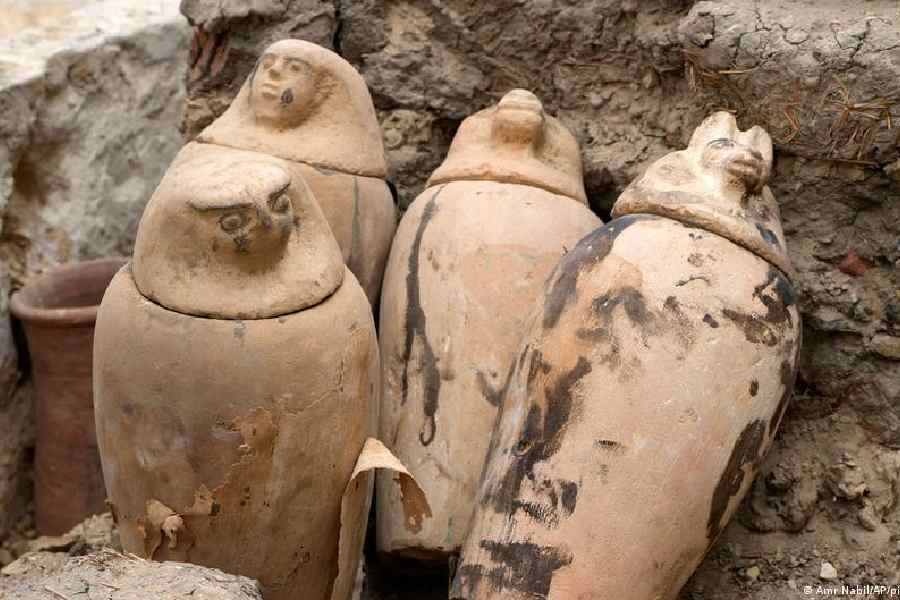Egyptian antiquities officials on Saturday revealed that a research team had unearthed human and animal mummification workshops, as well as two tombs in the ancient burial ground of Saqqara.
The discovery follows an excavation lasting about a year near the sanctuary of the goddess Bastet and catacombs of mummified cats in Saqqara, some 30 kilometers (18.5 miles) south of Cairo.
The embalming workshops, one in which humans were mummified with the other used for animals, date back to ancient Egypt's 30th dynasty — which reigned about 2,400 years ago.
Egypt's Tourism and Antiquities Ministry said that, in one of the workshops, the researchers had "found several rooms equipped with stony beds where the deceased lay down for mummification."
At the end of each bed were gutters that appeared to be needed for the mummification process.
There was also a collection of clay pots nearby to hold entrails and organs, and an assembly of other instruments and ritual vessels.
An initial study of the second workshop suggested that it was used to mummify sacred animals.
Also part of the discovery were the tombs of two priests, one dating back to the 24th century BC and the other to the 14th century BC.
The earliest belonged to Ne Hesut Ba, who was the head of scribes and priest of the gods Horus and Maat in the Old Kingdom's fifth dynasty.
Mohamed Youssef, director of the Saqqara archaeological site, said the tomb walls were decorated with depictions of "daily life, agriculture and hunting scenes."
The second tomb was carved in rock and features depictions of the deceased himself, a New Kingdom priest named Men Kheber, "in different positions."
It also contained a 1-meter (roughly 1-yard) alabaster statue.
Egypt's government has strongly promoted new archaeological finds to international media and diplomats in recent years in the hope that such discoveries will help attract more tourists to the country.
Cairo aims to revive an industry that suffered from political turmoil and that was battered by the pandemic and fallout from the conflict in Ukraine.
Economic data showed tourism revenues climbing to $7.3 billion in the second half of 2022, a 25.7% increase compared with the previous year.











